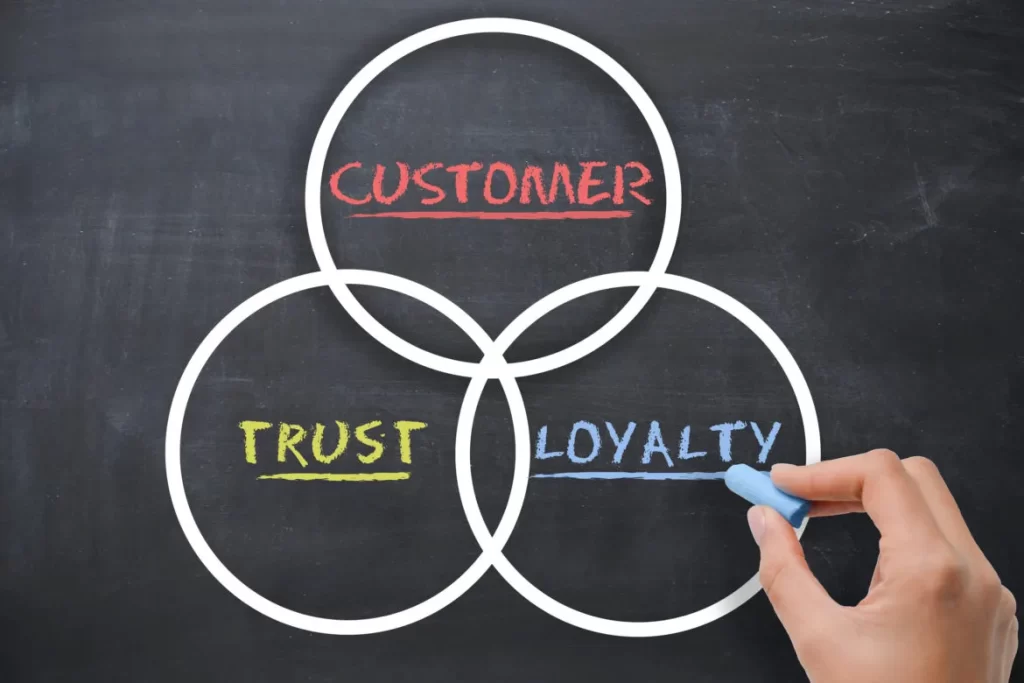A lot of us may immediately think of AI, automation and social media when it comes to pointing out things that have disrupted and improved the business domain in recent years in the most colossal of ways. And that is right to some extent, but not entirely true.
Once you go beyond new and efficient ways of doing business, you’ll stumble upon the change in reason(s) for running one in the first place. Perhaps the most profound and significant shift in the business space has come in determining a company’s long-term vision—one where profit is no longer the sole measure and metric of success. Instead, a new breed of companies is emerging, driven not only by financial gain, but also by a deeper sense of purpose and values.
Does commitment to values really shape a company’s success in today’s competitive marketplace?
Embracing a Higher Calling
In an era marked by increasing social and environmental challenges, businesses are stepping up to the plate and embracing their role as agents of change. Purpose-driven companies prioritise making a positive impact on society and the planet, integrating social responsibility and sustainability into their core business strategies.
Whether it’s addressing climate change, championing diversity and inclusion, or supporting community initiatives, these businesses are driven by a higher calling beyond mere profit.
Seventh Generation, a leading manufacturer of eco-friendly household and personal care products, operates with a mission to inspire a consumer revolution that nurtures the health of the next seven generations. Their commitment to sustainability and transparency in product ingredients aligns with their core values of environmental stewardship and social responsibility.
Building Trust and Loyalty
In a world where consumer trust is at an all-time low, purpose-driven businesses have a distinct advantage. By aligning their actions with their values and openly communicating their mission and impact, these companies build trust and credibility with customers, employees and stakeholders.
Consumers are increasingly seeking out brands that share their values and are willing to support companies that demonstrate a commitment to making a positive difference in the world, and they have a wide range of suitors to select now.

For instance, REI (Recreational Equipment, Inc.) is a retailer specialising in outdoor gear and clothing. Their employees are passionate outdoor enthusiasts, and REI fosters a culture that encourages outdoor exploration and environmental stewardship. This purpose-driven approach attracts top talent who share their values and lifestyle.
Attracting Top Talent
In today’s competitive job market, attracting and retaining top talent is a constant challenge for businesses. Purpose-driven companies have a competitive edge in this regard, as they appeal to employees who are seeking more than just a paycheck—they want to work for organisations that align with their personal values and offer opportunities to make a meaningful impact. By fostering a sense of purpose and belonging, these businesses attract passionate, motivated individuals who are dedicated to driving positive change.
Adobe, a multinational computer software company, prioritizes corporate social responsibility and employee well-being. They offer numerous employee benefits, including volunteer time off, diversity and inclusion programs, and sustainability initiatives. Adobe’s commitment to social impact and employee satisfaction attracts top talent from diverse backgrounds.
Fostering Innovation and Resilience
Purpose-driven businesses are also inherently more innovative and resilient. By prioritising values and purpose, these companies inspire creativity, collaboration and out-of-the-box thinking among employees. Moreover, their focus on social and environmental sustainability encourages them to adopt more agile and adaptive business models that can weather the storms of uncertainty and disruption.
Interface, a global manufacturer of modular carpet tiles, has been a pioneer in sustainable business practices. Their innovative approach to sustainable design and manufacturing has reduced their environmental footprint and also inspired industry-wide change.
In essence, purpose-driven businesses are not only shaping the future—they’re leading the way towards a more sustainable, equitable and prosperous world.
Measuring Impact Beyond Profit (The Triple Bottom Line)

While profit remains an important metric for measuring success, purpose-driven businesses recognize that it’s not the only measure that matters. Instead, they place equal emphasis on measuring their impact on society and the environment, using metrics such as Social Return on Investment(SROI), environmental footprint, and stakeholder satisfaction to gauge their performance.
By taking a holistic approach to measurement, these companies ensure that they are creating value not just for shareholders, but for all stakeholders involved.
One of the best examples of measuring impact beyond profit is Danone, a multinational food-products corporation, which has made sustainability a central focus of its business strategy. They have set ambitious environmental and social goals, such as achieving carbon neutrality and promoting regenerative agriculture. Danone regularly reports on their progress towards these goals, demonstrating their commitment to measuring impact beyond profit.



